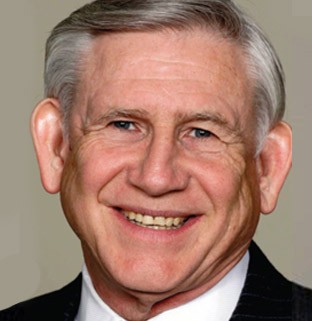Southwestern Energy’s President and CEO Is Not Afraid of Another Downturn
As a nearly 40-year veteran of a volatile industry, Southwestern Energy President and CEO Bill Way has seen lots of ups and downs. The downturns have honed his crisis and change management skills, giving him a hard-won sense of how to lead teams through the emotional and financial minefields that come with an industry—or economy—in free fall.
In January 2016, when Mr. Way was promoted from COO to take the reins of Southwestern Energy, the $3.8 billion natural gas exploration company headquartered in Spring, Texas, USA was in dire straits. In the previous 18 months, the energy sector, and gas in particular, had seen prices fall to historic lows. Southwestern Energy was one of the most prominent victims of those market forces, and due to some debt incurred to fund acquisitions when prices were higher, the company’s previous investment-grade credit rating dropped.
In Mr. Way’s first month on the job, the company stopped drilling wells and laid off 40% of the staff—the first major layoffs in the company’s 90-year history.
From this difficult position, Mr. Way built up a company that now has one of the strongest balance sheets in its industry. In June, EY recognized his “transformational leadership” by giving Mr. Way its 2019 Entrepreneur of the Year award for the energy sector category in the Gulf Coast area.
In this interview, Mr. Way explains how he evolved Southwestern Energy’s strategy and culture, motivating people to buy into a new plan at one of the company’s most difficult hours. And he discusses how he is ensuring the company is ready for the next downturn.
“Visible and engaged leadership is critical. People need to see you and understand who you are as a human being. They don’t listen too much to what you say, but they watch everything you do.”
—Bill Way, president and CEO, Southwestern Energy
IQ: What was the situation like when you took over as CEO?
Bill Way: Our balance sheet was over-stressed, and our debt load was too great. Our liquidity was becoming challenged because gas prices were so low and our principal credit agreement was due to expire in 2018.
When your body’s in distress, you have to get it out of distress as fast as you can. Because if you let it stay there, you can damage it. I had to approach the company the same way. We had to move decisively and urgently and get ourselves out of distress as quickly as we could.
I put together a three-pronged approach: Stabilize the company and pull us out of distress; optimize and increase its value; and then reposition it for the future to compete and win. There was little time to lose. Because prices had fallen so low, we did not have the economics to keep drilling. If we could not make money, we had to suspend drilling, and we did just that.
The layoffs were horrific. Walking into the building in the middle of the winter, in the dark, and seeing so many people leaving under my watch—that hit me really hard.
I made a decision at that moment to be bold in whatever decisions we made and then be confident in their implementation—all with the very clear premise that our people are what makes our company great. To ensure that the people who stayed were proud of the company at the end of the day, I leaned on my core values and principles to treat people right.
Visible and engaged leadership is critical. People need to see you and understand who you are as a human being. They listen to most of what you say, but they watch everything you do.
“When your body’s in distress, you have to get it out of distress as fast as you can. Because if you let it stay there, you can damage it. I had to approach the company the same way.”
—Bill Way
IQ: What did you do to support the remaining employees?
BW: A lot of people had lost confidence in the company. We had to rebuild credibility by setting out a very clear path and then delivering on every single thing we said we would do.
Our company’s official formula, our mantra of sorts, is “The right people doing the right things.” So at a time when we had to conserve money, we invested in leadership development for our leaders, many of whom had never been through an economic downturn like this before. It was important to help them build resilience, deal with what they were feeling and what they were thinking, so they could lead their people through the transition.
The training really changed the course of what happened that year. By June, we had reworked and extended our credit facility and pivoted the organization to focus on margin improvements and cost reductions. By the end of the year, our employees had exceeded every one of their goals and earned bonuses that exceeded many of their expectations. It was a year when we went from the darkest days I’ve ever seen in my career to one of the brightest days I’ve ever seen.
IQ: In what way did the leadership training make such a big impact?
BW: It was so critical because I had a workforce that on average was new in their careers and less experienced. I had many new leaders who had never been through a downturn. We decided that it was essential that we help our leaders deal emotionally with the fact that they’re getting ready to lay off 40% of their team by helping them understand their own emotions so that they could lead their employees through the difficult task.
The training helped people process this difficult time, and we coached them on how to actually handle the people who would leave our company and support those who would remain. What do you say, how do you go in there, what to expect? We spent a lot of time on learning about severance so that when the business ultimately recovers, people will want to come back.
And they did. We laid off our entire drilling and completions organization. When we decided to resume drilling, we got 100% of the people we wanted back. One moment illustrates what happened better than any numbers. I was at an awards ceremony in Arkansas, six months after the layoffs. A man at my table leaned over to me and said, “You know, you laid me off.” And I thought, oh Lord, what’s going to happen next? And I said, “Yes, I did, and I feel terrible about doing that. But we had to do it.” And he goes, “I know. And then you hired me back.” And he had this big grin on his face when he said that. “You laid us off, you brought us back, you treated us well. You need to understand that in the field, we will do anything for you all.”
I tell you that because what we wanted to have come out of all this was every employee was treated with the utmost respect and dignity, to demonstrate how much respect for them we had.
IQ: How did the downturn and resulting layoffs affect the way you approach risk management?
BW: No one anticipated a downturn with the velocity we experienced in 2016. We’ve actually changed our overall enterprise risk management to look at velocity of change in risks, in addition to the risk itself.
When we look at enterprise risk management, it’s critical to look at the risks both positively and negatively. It’s a strategic plank for me to have a strong balance sheet and plenty of firepower, so that I can deal with downside risks or we can opportunistically capture the upside if something comes along.
The key issue is that velocity of change can be so quick that if you haven’t ingrained resiliency and being the best at everything that you do into the very fabric of your company, from the mailroom to the boardroom, then you can get caught out.
You’ve got to let people have a holistic modeling they apply to different risks. But you also have to have holistic thinking. Life does not work the way your spreadsheet says it’s going to. For example, your model may show solid economics, but if a supplier messes up or a pipeline is delayed, your outcome is affected.
IQ: In retrospect, are there any ways that you would have handled the downturn differently?
BW: I made a major change to my leadership. But I took too long to do that. When you’re going through all these layoffs and restructuring, you do need people just for continuity. But I learned that sometimes you’ve got to move on, because you really need the strength of a high-powered team. So I’d tell any leader: Staff well and staff on time. Be urgent about it.
“Velocity of change can be so quick that if you haven’t ingrained resiliency and being the best at everything that you do into the very fabric of your company, then you can get caught out.”
—Bill Way
IQ: Do you see a recession happening anytime soon? How are you preparing for one?
BW: I think our country is in terrific shape, from an economic perspective. We have some significant geopolitical issues at play, and I look at those as potential challenging factors.
I believe it is important that you prepare for the downside all the time by how you invest and how you manage your business. If you can, you always want to preserve the upside. But when you’re faced with working in a world where cycles happen, downside protection is essential. We’re disciplined and rigorous in our investment practices. We either invest in new projects that generate an acceptable return in the commodity environment we find ourselves in or we pull back on investing. Investors want winners. And so we take great care to get out in front and differentiate ourselves against our competitors on costs, margin, revenues and performance—regardless of the pricing environment.
Ultimately, though, it comes down to your people. So you need to connect them to the mission of the company and help them understand what a career looks like here. And you have to help them understand why you get so excited about coming here every day. The more clarity, the more rigor, the more specific you can get, the better off you are.
Leadership development at the top—it’s got to be a priority to create and renew leaders. Share on X We invest a lot of our time and money in that, whether in the middle of a crisis or in the normal course of business. Cultivating strong leaders is one of probably the best ways to prepare for the future.
This article appeared in the Fall 2019 issue of Insigniam Quarterly, with the headline “After the Crash.” To begin receiving IQ, go here.





